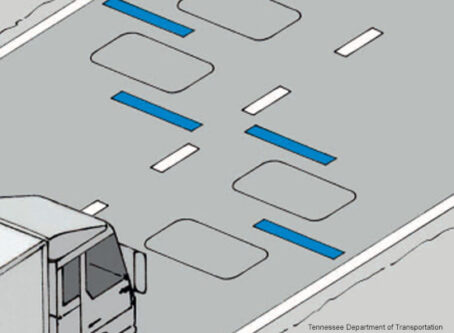Speed limiters and in-cab warning devices coming to British Columbia
Carriers operating in British Columbia will need to prepare for a pair of regulations taking effect later this year.
In December 2023, the province announced measures aimed at improving safety and reducing the number of bridge and overpass strikes by commercial vehicles. On top of increased fines and penalties for oversized vehicles involved in infrastructure crashes, the provincial government also announced regulations mandating the use of in-cab warning devices for commercial vehicles with dump boxes.
“Commercial vehicle infrastructure crashes cause damage, stop the movement of people and goods and increase safety risks for everyone on the road,” the British Columbia Ministry of Transportation and Infrastructure said. “The ministry is implementing measures to further deter these incidents and to respond with stronger enforcement when they occur.”
Under the new regulations, commercial vehicles with a dump box capable of rising above 4.15 meters (around 13.6 feet) are required to be equipped with a visual or audio warning device that alerts the driver if the dump box is raised. According to the ministry, the vehicle’s height is determined by measuring the distance from the highest point of its dump box when fully raised to the road surface.
The new mandate will take effect on June 1. Carriers who are found in violation will face a fine of $598 (about $443 is U.S. dollars) and will have the offense recorded against their National Safety Code profile.
Dump truck owners aren’t the only ones impacted by new regulations. Soon, all heavy commercial vehicles operating in British Columbia will be required to use speed limiters.
In April 2023, British Columbia Minister of Transportation and Infrastructure Rob Fleming introduced Bill 23, which modified the province’s Motor Vehicle Act to mandate the use of speed limiters on all heavy trucks. At the time, the ministry said the use of speed limiters would help with “decreasing (greenhouse gas) emissions, reducing speed-related crashes and making it safer for all road users.”
The new mandate will take effect on April 5. At that time, all commercial vehicles operating in British Columbia manufactured after 1994, with a gross vehicle rating of more than 11,793 kg (26,000 pounds), will be required to have their speed limiters activated, set and accurately programmed to a maximum rate of speed of 105 km/h (65 mph). Emergency vehicles and motorhomes are exempt from the new requirement.
Once the law takes effect, the following violations may result in a fine of $368 (about $272 USD):
- No speed limiter in heavy commercial vehicle
- Speed limiter not activated
- Speed limiter not set to prescribed maximum rate of speed
- Speed limiter not in good working order
- Inaccurately programmed electronic control module
- Tampering technology in heavy commercial vehicle
- Tampering technology interacting with speed limiter
Ontario and Quebec are the only other Canadian provinces that have mandated the use of speed limiters on trucks. Ontario has required the use of the devices since June 2008, capping speeds at 105 km/h. In 2009, Quebec followed suit, limiting commercial vehicles to the same speed.
According to the British Columbia Ministry of Transportation and Infrastructure, Ontario saw a 73% reduction in speed-related crashes involving commercial vehicles after the province’s mandate took effect.
“As heavy commercial vehicles regularly travel cross-country, this requirement will provide consistency for carriers and truckers who travel between B.C., Ontario and Quebec, where speed limiter requirements also exist,” the ministry said. LL









